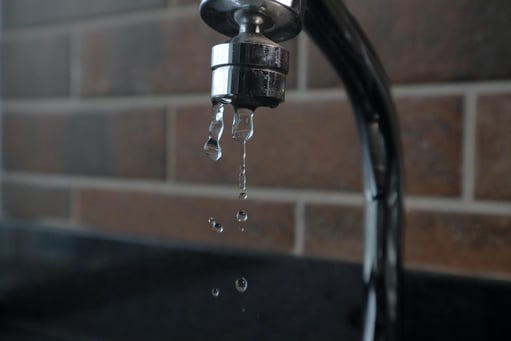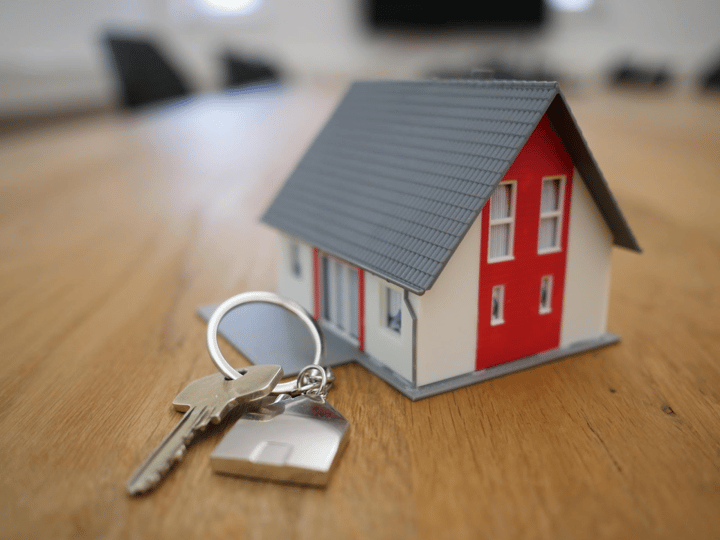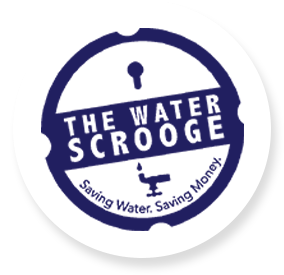4 min read
The Long-Term Financial Impact of Water Waste for Property Owners
![]() David Schwartz
Jun 7, 2023 3:03:52 PM
David Schwartz
Jun 7, 2023 3:03:52 PM

The widespread use of wasteful water practices requires immediate attention due to the massive environmental impact. For example, leaky pipes and over-irrigated landscapes contribute significantly to this unfortunate reality. In addition, landlords and property owners cannot afford to ignore the financial consequences of water waste, which go beyond the environmental concerns that affect profitability over time by depleting finite resources.
We’ll focus on investigating how property owners are impacted financially by wasting water through uncontrolled leaks and the costs involved in installing efficient fixtures while exploring opportunities for taking proactive steps toward sustainable water management practices.
Related: DIY Plumbing and Improving Energy Efficiency
Understanding the Cost of Water Waste
Property owners and landlords need to understand that their monthly water bill isn’t just affected by how much they consume; unnecessary wastage also influences it, which could turn out to be a severe financial drain. Inefficiencies within your water supply system are the leading causes of such wastages, which compound over time and considerably inflate your utility charges.
For example, a leaky faucet may appear insignificant at first; however, it could result in the loss of over 3,000 gallons annually if you don’t address it. Similarly, running toilets or drippy pipes only increases utility costs over an extended period. Besides higher bills, additional unforeseen or “hidden” expenses come with wasting water. A compromised plumbing system may result in frequent repairs at a more significant expense, while chronic leaks can lead to severe structural damage requiring expensive fixes.
Underestimating water waste as a landlord could prove costly, given that we’re currently witnessing increasing costs associated with this resource. Furthermore, while it doesn’t seem that significant at first glance, such waste gradually erodes your resources over time - something no property owner wants to experience or bear the brunt of long-term consequences associated with this negligence.
So, recognizing and taking steps to fix these inefficiencies become essential for keeping our planet healthier and our wallets fuller.
Are you looking for a way to conserve your tenants’ water usage when they shower? The Water Scrooge offers The Shower Scrooge flow restrictor!
Environmental Impact of Water Waste
Water resource preservation is critical from both an economic and environmental standpoint. Landlords must understand that failing to meet this obligation has far-reaching consequences. Water waste exacerbates already dire consequences, such as ecosystem disruption and the adverse effects of climate change, while depleting valuable resources. Worse, treating and transporting wastewater consumes much energy, increasing greenhouse gas emissions.
Today, real estate decisions include sustainability. As a result, renters are increasingly choosing environmentally friendly rentals. Property owners who serve this emerging market by proactively managing water use and promoting conservation practices benefit the planet and eco-conscious renters who value sustainability as part of their lifestyle choices. Thus, reducing water waste can increase your rental’s longevity and profitability while helping the environment.
Impact of Water Waste on Property Value

Sustainability impacts property values beyond environmental issues. More tenants will pay more for green features like water-saving fixtures and appliances. People are increasingly choosing eco-friendly commercial buildings. Conversely, leaks or old appliances make water-wasting sites less appealing over time. This reduces rental income and property value.
Several studies show that certified sustainable buildings have higher rental yields and sales prices than similar non-certified buildings, in part because they cost less to maintain. In addition, water conservation saves landlords money and increases property value.
Practical Ways to Reduce Water Waste
Upgrades to more water-efficient fixtures and appliances in indoor and outdoor spaces are an excellent way to reduce water waste on properties. For example, this could mean replacing old toilets, showerheads, and faucets with ones that use less water. It could also mean buying washing machines and dishwashers that use less water. It’s also essential to reduce the amount of water used in landscaping, whether through xeriscaping or drip irrigation systems that deliver just the right amount of water to plant roots.
As property owners, you should make regular maintenance a top priority. This includes checking the plumbing system for leaks and scheduling repairs as soon as you can to prevent waste that goes unnoticed because of hidden leaks or other problems. In addition to helping the environment, these improvements are likely to make it easier to find tenants who care about the environment.
Are you a DIY enthusiast? If so, The Water Scrooge offers a range of great water conservation kits.
The Role of Tenants in Water Conservation
Tenants play a crucial role in water conservation efforts. One of the first steps landlords can take is educating tenants about the importance of water conservation and providing practical tips for reducing water use, such as fixing leaks promptly and not letting the water run unnecessarily. Also, including water-saving policies in lease agreements is another effective strategy. These could range from rules about outdoor water use to agreements about reporting and fixing leaks.
To further incentivize conservation, consider implementing a reward system. For instance, you might offer a small rent discount to tenants who consistently use less water or host a friendly competition among tenants with a prize for the one who conserves the most water.
Related: Top 10 Must-Have Water Conservation Products for Your Home
Long-Term Financial Benefits of Water Conservation
Water conservation offers a multitude of long-term financial benefits for landlords. For one, water-efficient fixtures and appliances can significantly save utility bills over time. Research suggests that a water-efficient toilet, for instance, can save you roughly 13,000 gallons of water per year, translating to substantial cost savings.
Furthermore, adopting sustainable practices can boost property value. As tenants increasingly seek environmentally friendly properties, landlords implementing water conservation measures tend to command higher rents and enjoy greater tenant retention.
Lastly, proactive water management reduces the risk of future costly repairs. Regular maintenance and prompt attention to leaks can prevent severe water damage and expensive restoration work.
Take the Plunge - Conserve Water, Save Money

Water conservation is not just an environmental necessity; it’s a savvy financial strategy for property owners. The benefits are substantial, from reducing utility bills to enhancing property values and avoiding costly repairs. The time to act is now.
For those who need guidance or assistance with upgrading fixtures, The Water Scrooge is here to help. Their experts can provide valuable advice and support to ensure your properties are as water-efficient as possible. Visit The Water Scrooge to take the first step towards a more sustainable and profitable future. Remember, every drop saved counts towards a better tomorrow.
Related: Why Do We Need to Save Water?

